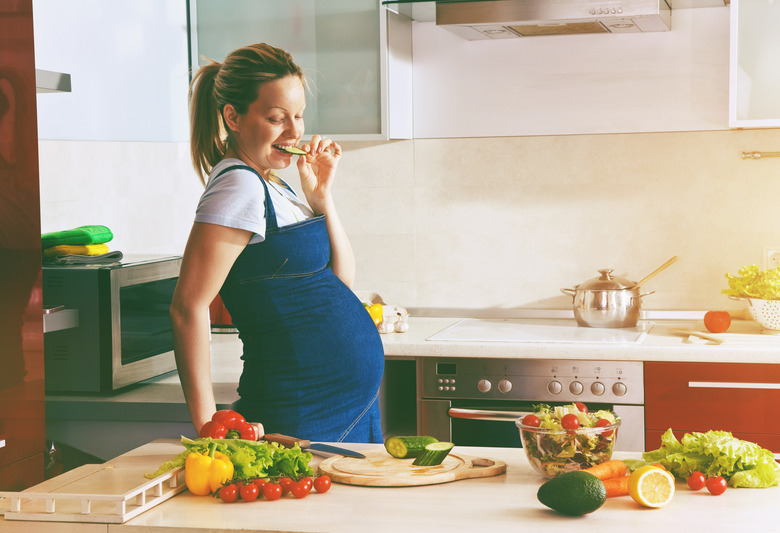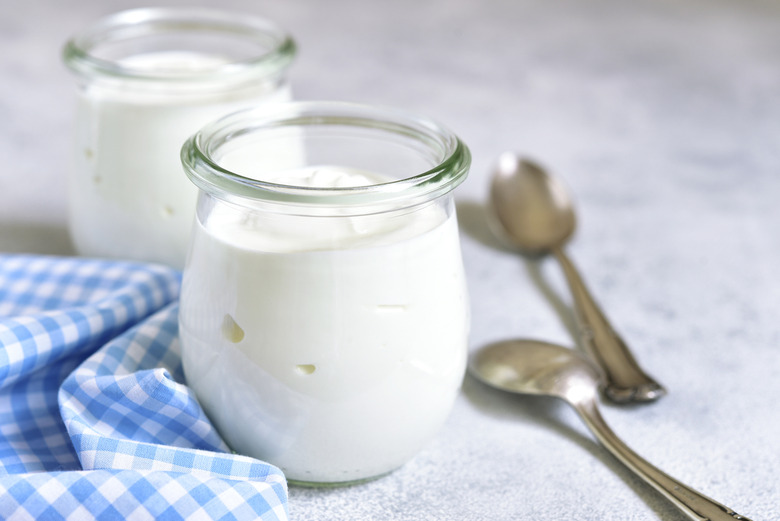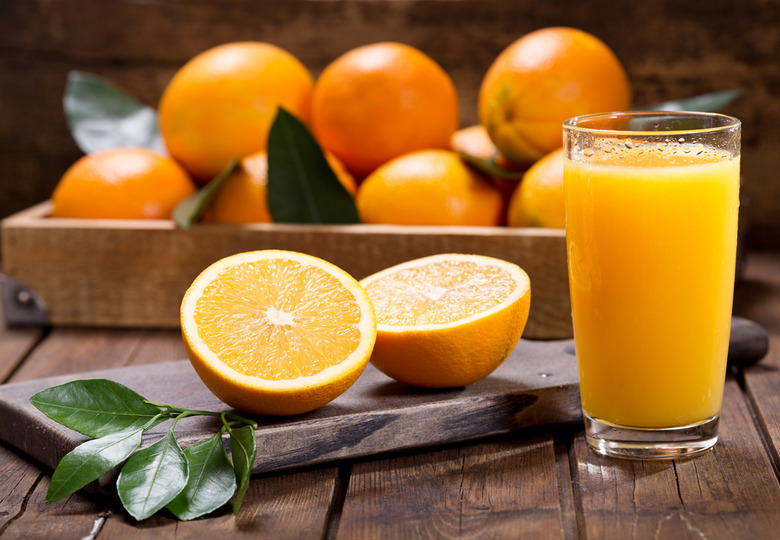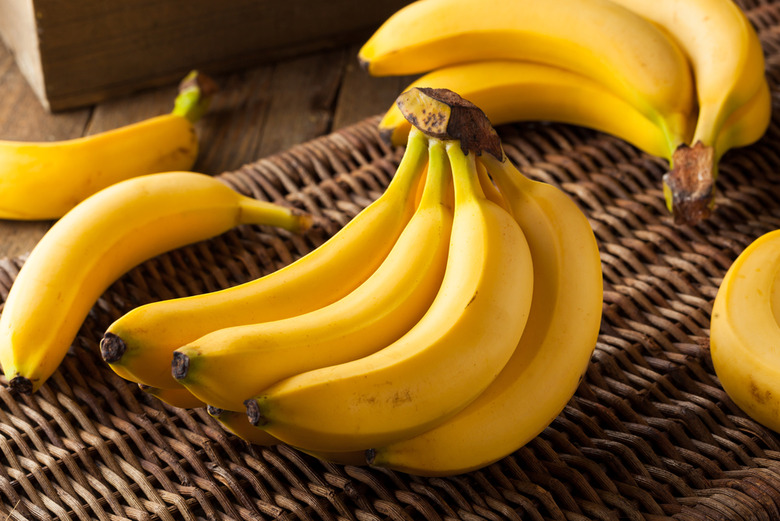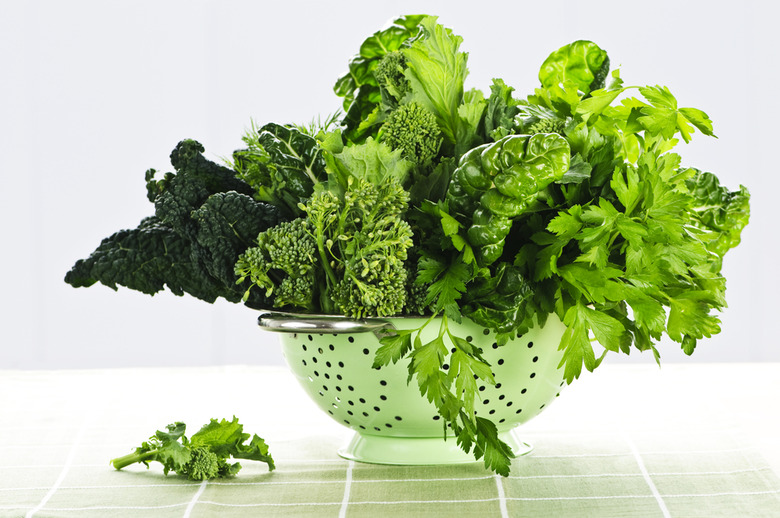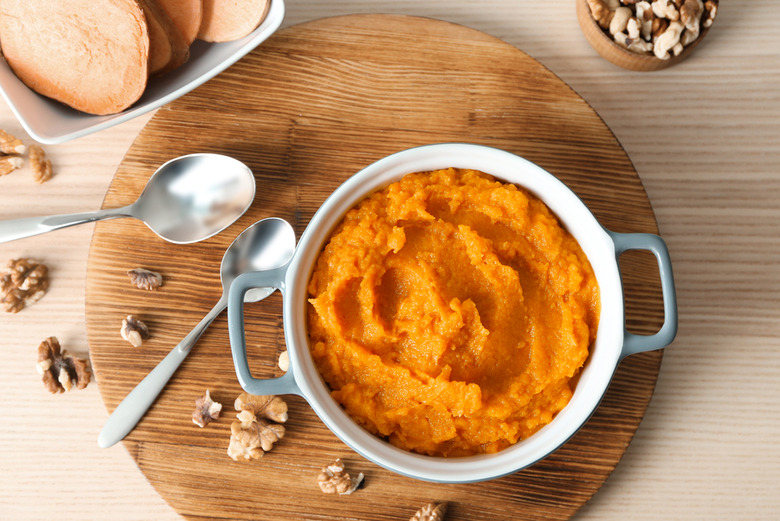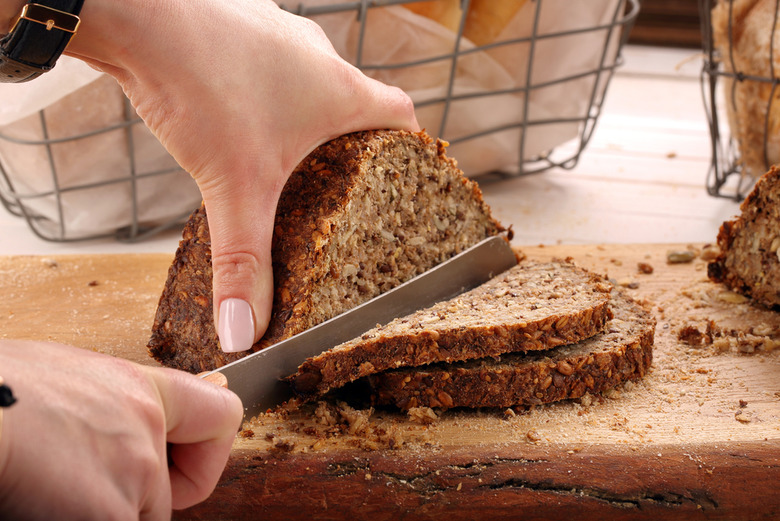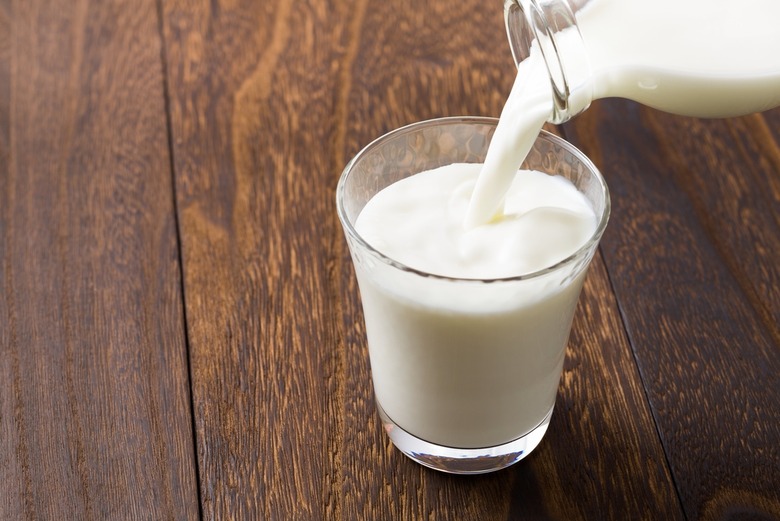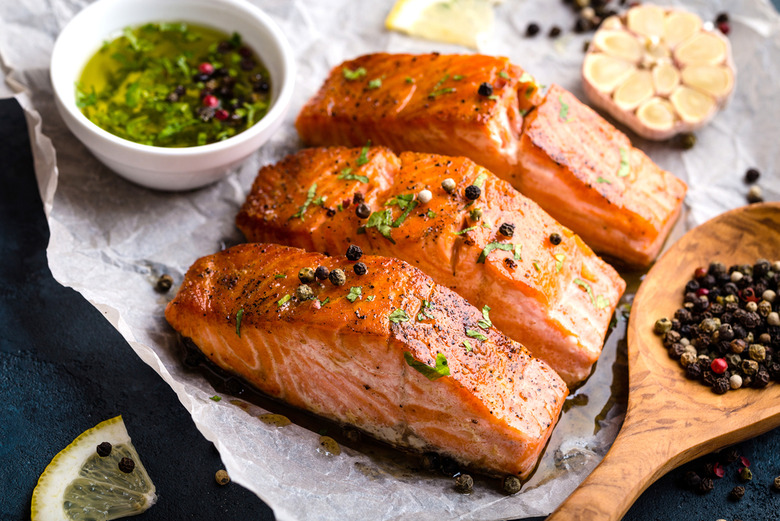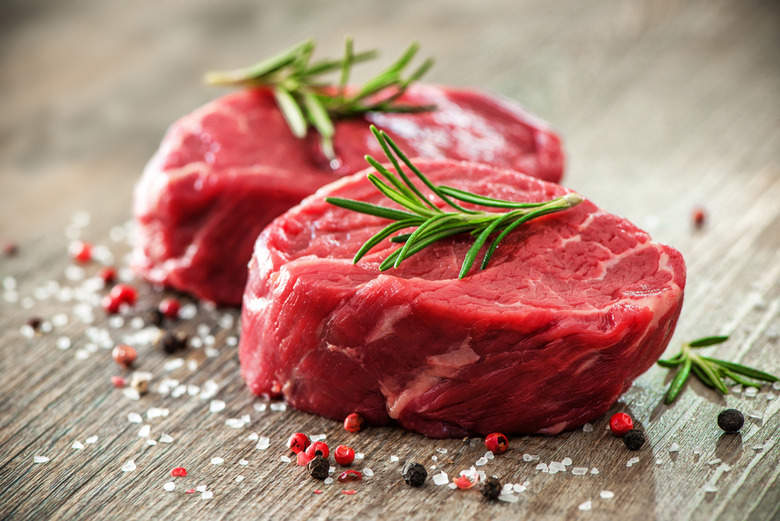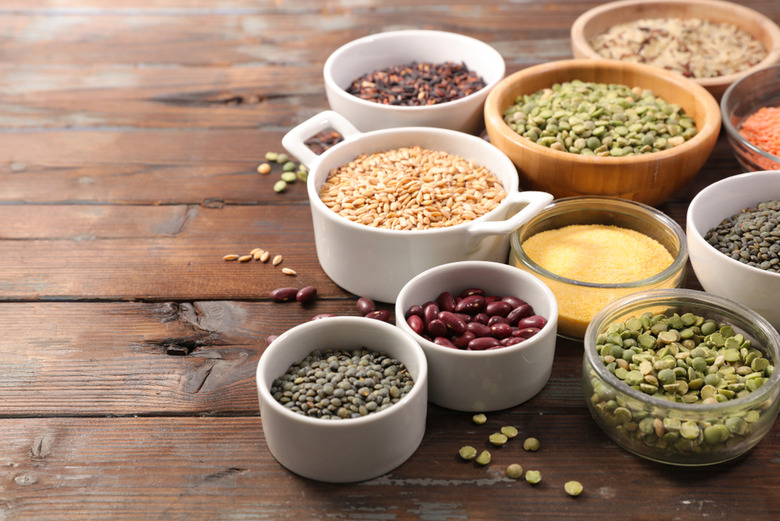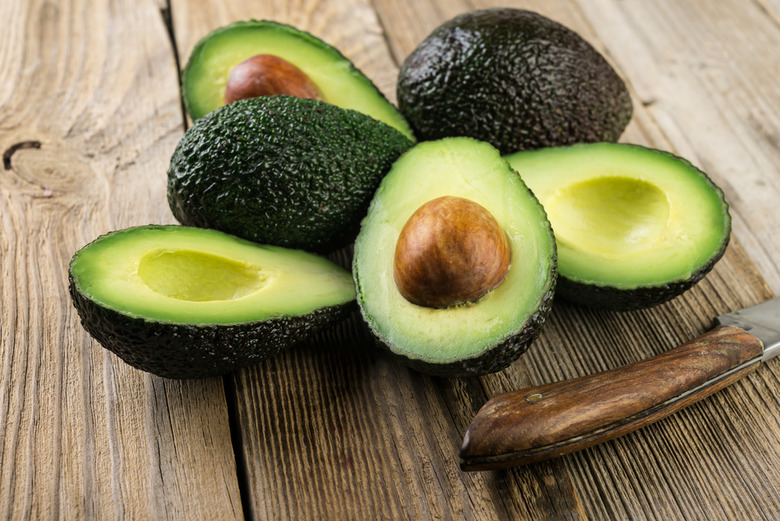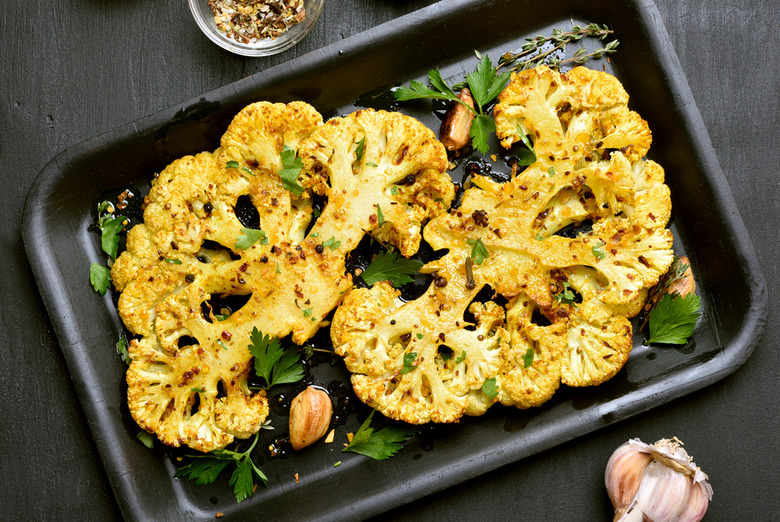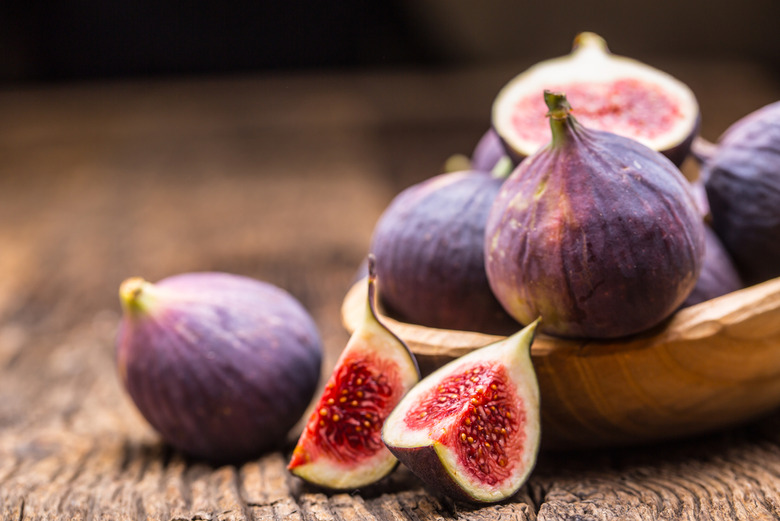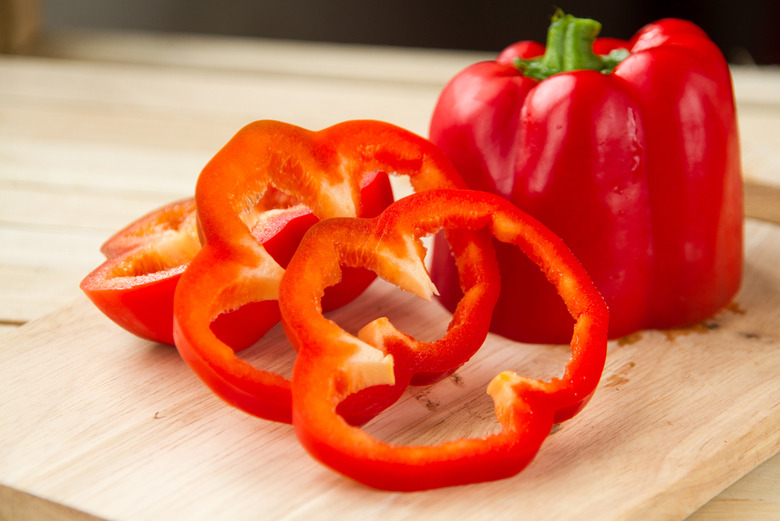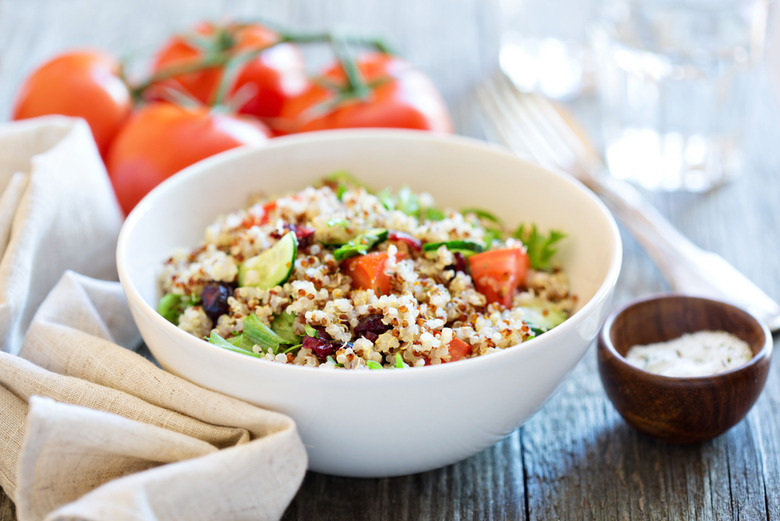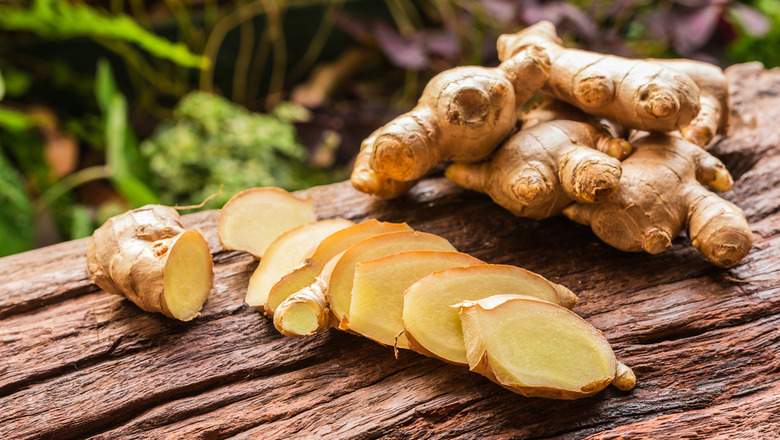20 Things Pregnant Women Should Add To Their Diet
When it comes time to eat for two, you may need to change your thinking about what a healthy diet consists of. Women need to make sure their diet provides an adequate amount of nutrients and energy for the baby to grow, as well as prepare their own body for the coming changes and sleepless nights.
To help us understand why certain vitamins and foods are essential, we talked to Frances Largeman-Roth, registered dietician nutritionist and author of "Feed the Belly: The Pregnant Mom's Healthy Eating Guide," about what expecting moms should be eating for a happy and healthy pregnancy, and we also consulted guidelines from the Centers for Disease Control and Prevention, the Food and Drug Administration and the American College of Obstetricians and Gynecologists.
Fortified foods like breakfast cereals
Fortified foods are extremely important for mamas-to-be. "Many women think they should be cutting these foods out of their diet because they have 'too many carbs,' but fortified foods contain folic acid and iron, two nutrients that are essential during pregnancy," Largeman-Roth said. According to the CDC, folic acid can help prevent birth defects of the baby's brain and spine (spina bifida). Largeman-Roth suggests eating fortified breakfast cereals like Total Raisin Bran that have as much as 400 micrograms (mcg) of folic acid per one-cup serving — pregnant women need to get between 600 and 800 mcg of the B-vitamin every day. You can get most of your day's grains with a bowl of fortified cereal for breakfast, a lunchtime sandwich made with two slices of whole-wheat bread and whole-wheat pasta for dinner.
Yogurt
Yogurt is great for pregnant women for a few reasons, including protein, high calcium content and probiotics that are good for digestion. All women 19 years and older need to get 1,000 milligrams of calcium every day, according to the American College of Obstetricians and Gynecologists. Largeman-Roth says the problem is that most women don't get nearly enough. When you're not expecting, you can get away with not meeting your calcium needs, she said. But once the baby starts growing and you don't consume enough to support the baby's bones and teeth, the baby will start borrowing from your own bones, leaving you calcium-deficient.
Oranges
Oranges are not only sweet and juicy, but they also offer a boost of folic acid and hydration, which is so important. Largeman-Roth credits the bright citrus fruit for having a substantial amount of fiber to help keep expectant mothers regular as constipation is a common issue during pregnancy. "Plus it helps stave off leg cramps with over 300 milligrams of potassium," she said. "I recommend ending the day with a piece of citrus, such as an orange."
Bananas
Bananas are high in electrolytes like potassium and offer a quick energy boost to combat pregnancy fatigue. One medium banana has 422 grams of potassium, according to the U.S. Department of Agriculture. Pregnant women need 2,900 milligrams of potassium daily. It's important to note that although multivitamins and mineral supplements do contain potassium, they typically provide far less than what's found in natural foods. Bananas also pack in vitamin B6, which is essential for a healthy immune system for both mother and baby.
Leafy greens
There's a reason our moms forced us to eat greens — they're loaded with nutrients. Dark, leafy greens like mustard greens and spinach provide folate and iron for pregnant women. Largeman-Roth recommends choosing triple-washed greens that are ready to eat. She also advises pairing iron-rich foods like spinach with a vitamin-C rich food like red bell peppers, oranges or strawberries to boost the absorption of iron.
Nut butters
Nuts and nut butters are a great way to add protein to meals and snacks and also provide fiber and satisfying fats. If you're not a fan of peanuts try almond butter, which has a nuttier, earthy flavor and packs 7 grams of protein per two tablespoons. Pick brands that are all-natural and don't contain any added salts, sugars or palm oils. The ingredient label should read simply: dry roasted almonds.
Sweet potatoes
For a nutrient-dense and filling food choice, look no further than sweet potatoes. One cup of cooked, boiled sweet potato provides 8 grams of fiber and 2000 mcg of vitamin A in the form of beta-carotene, which is essential for skin and eye cell growth as well as a healthy immune system, according to Largeman-Roth. Try to squeeze in sweet potatoes at least once or twice a week, if not more.
Whole grains
Whole grains are rich in minerals and vitamins and are good for long-term health, Largeman-Roth said. Foods like whole-wheat bread, rye and oats are fortified with folic acid and have higher amounts of fiber than white bread and rice because they include the fibrous outer bran. This may be one of the easier foods to slip into your diet with plenty of sandwich options to choose from.
Milk
Milk is a staple in a pregnant woman's diet and all varieties of dairy milk — low fat and full fat — are wholesome and packed with calcium, potassium and vitamin D. "I recommend organic, whole milk to my clients who are trying to conceive or are pregnant," Largeman-Roth said. "Organic because there are no added hormones or antibiotics, and whole milk because it's delicious and satisfying." If you have dietary restrictions or follow a vegan diet, soy milk is a good alternative to dairy and packs a generous amount of calcium and protein in just one cup.
Fatty fish like salmon
According to the American College of Obstetricians and Gynecologists, omega-3 fatty acid, a type of fat found naturally in some fish, is beneficial for a baby both before and after birth. Omega-3 fatty acids are found in fish such as salmon, tuna, sardines and anchovies. Largeman-Roth said there are two types of omega-3 fats in these fish — docosahexaenoic acid and eicosapentaenoic acid — that have been shown to play a key role in the development of a baby's brain. The FDA recommends pregnant women eat between 8 and 12 ounces of low-mercury fish per week.
Eggs
An overlooked but essential nutrient found in eggs is choline, which is vital to a baby's brain development and in the prevention of birth defects. Choline may even help your baby's memory and ability to learn. Pregnant women should consume at least 450 milligrams of choline daily, and an egg itself has 147. Along with choline, one egg contains 6 grams of protein and 0.8 milligrams of iron — and most of all, eggs can be made a number of different ways and require no time at all to cook, making them perfect for those extra-fatigued mornings.
Lean red meat
Lean red meat is packed with iron, which is essential for moms-to-be. The body uses iron to make hemoglobin, a protein in red blood cells that carries oxygen from the lungs throughout the body. And because your blood volume increases by 50% to provide oxygen to the developing fetus when you're pregnant, the need for iron also increases.
Beans and lentils
Beans and lentils are a versatile and delicious source of plant-based protein, as well as fiber and other nutrients. Canned beans are also inexpensive and work as quick meal-starters. Saute some fresh diced tomatoes with sliced onions in olive oil, garlic and cilantro — throw in a can of drained kidney beans, season it up for taste and enjoy a super-fast lunch served alongside some crusty bread.
Avocados
Avocados are full of healthy fats, high in dietary fiber and a great source of folate. According to the American College of Obstetricians and Gynecologists, the fats that you eat during pregnancy provide energy and help build many fetal organs including the placenta — so stick to plant-based healthy fats. Folate, as we know, is also especially important during early pregnancy, because it can reduce the risk of birth defects. For a scrumptious snack, make avocado toast by mashing avocado gently onto a piece of whole-wheat toast, then sprinkling it with sea salt, freshly cracked black pepper and a touch of chili flakes.
Cauliflower
Cauliflower is having a bit of a moment in the food world. There are cauliflower pizza crusts and cauliflower rice, and it's becoming a popular meat substitute for dinner with its full-bodied texture and versatility. It's also rich in vitamin C, making it a great choice for pregnant women. Vitamin C is particularly important in promoting a baby's growth and development, according to an article published in the Archives of Pediatrics & Adolescent Medicine.
Figs
Both fresh figs and dried ones are full of potassium and an easy way to add more fiber to your diet. Dried figs are probably easier to find at the grocery store and contain about 260 grams of potassium and 3 grams of fiber in a fourth-cup serving. They're also naturally sweet and satisfyingly chewy, ideal for a quick and healthy snack that every woman should consider incorporating into her diet.
Red bell peppers
Red bell peppers have 117 milligrams of vitamin C per cup, which makes them a colorful and delicious ingredient to pair with foods high in iron like beans and lentils or lean meat. They're crunchy, sweet and make a perfect vehicle for hummus.
Quinoa
Quinoa is especially high in protein, with 8 grams per serving. "It's easy to make a satisfying grain bowl with a base of quinoa," Largeman-Roth said. "You can top it with raw and cooked veggies, a fried egg, a few avocado slices, a little cheese and some nuts." Quinoa is also an ideal choice for flexitarian diets, which lean heavily on meatless meals.
Ginger
According to an article by Jill Jin, MD, MPH in the Journal of the American Medical Association (JAMA), the symptoms of nausea and vomiting are experienced by more than 85% of pregnant women and most women feel the symptoms throughout the day — not just in the morning. According to Jin, ginger is one of the best over-the-counter remedies proven to treat nausea and vomiting during pregnancy. It's easy to find ginger in many forms, from fresh to candied and even in caffeine-free herbal teas. "I recommend keeping candies made from real ginger (such as Gin Gins) in your purse or gym bag to keep nausea in check, Largeman-Roth said. "Real ginger beer, such as Reed's or Fever-Tree, are also good picks."
Water
This one is a given, but it's worth reminding: pregnant women must drink plenty of water. According to research published in the Journal of Perinatal Education, water provides shape and structure to cells, regulates body temperature, aids digestion and the absorption of nutrients, transports nutrients and oxygen to cells and acts as a solvent for vitamins, minerals, glucose and amino acids. In short, it does a lot more than just hydrate, and your body will let you know if you're not getting enough. Here are the signs you might not be drinking enough water.
More from The Daily Meal:
Diet Mistakes You're Making Before Noon
19 Facts About Diet Soda That Might Make You Finally Stop Drinking It
The Best Foods for Healthy, Glowing Skin
26 So-Called 'Healthy' Foods You Should Avoid
Unexpected Signs of an Unhealthy Heart
